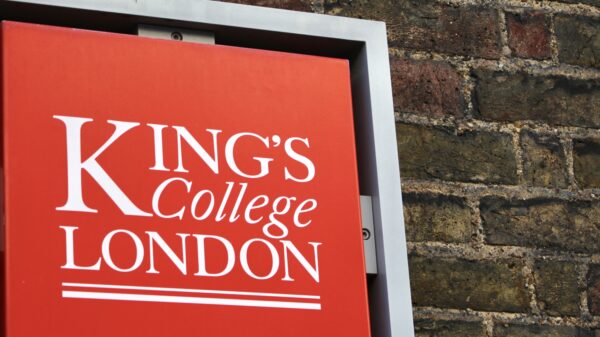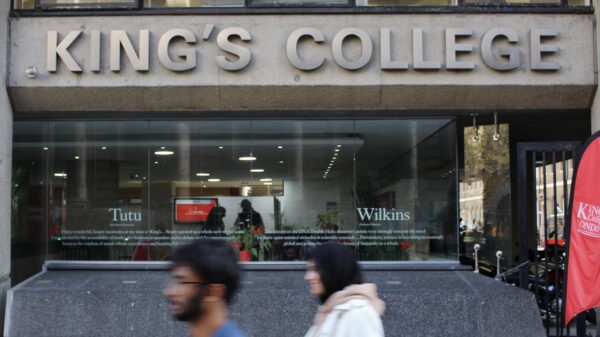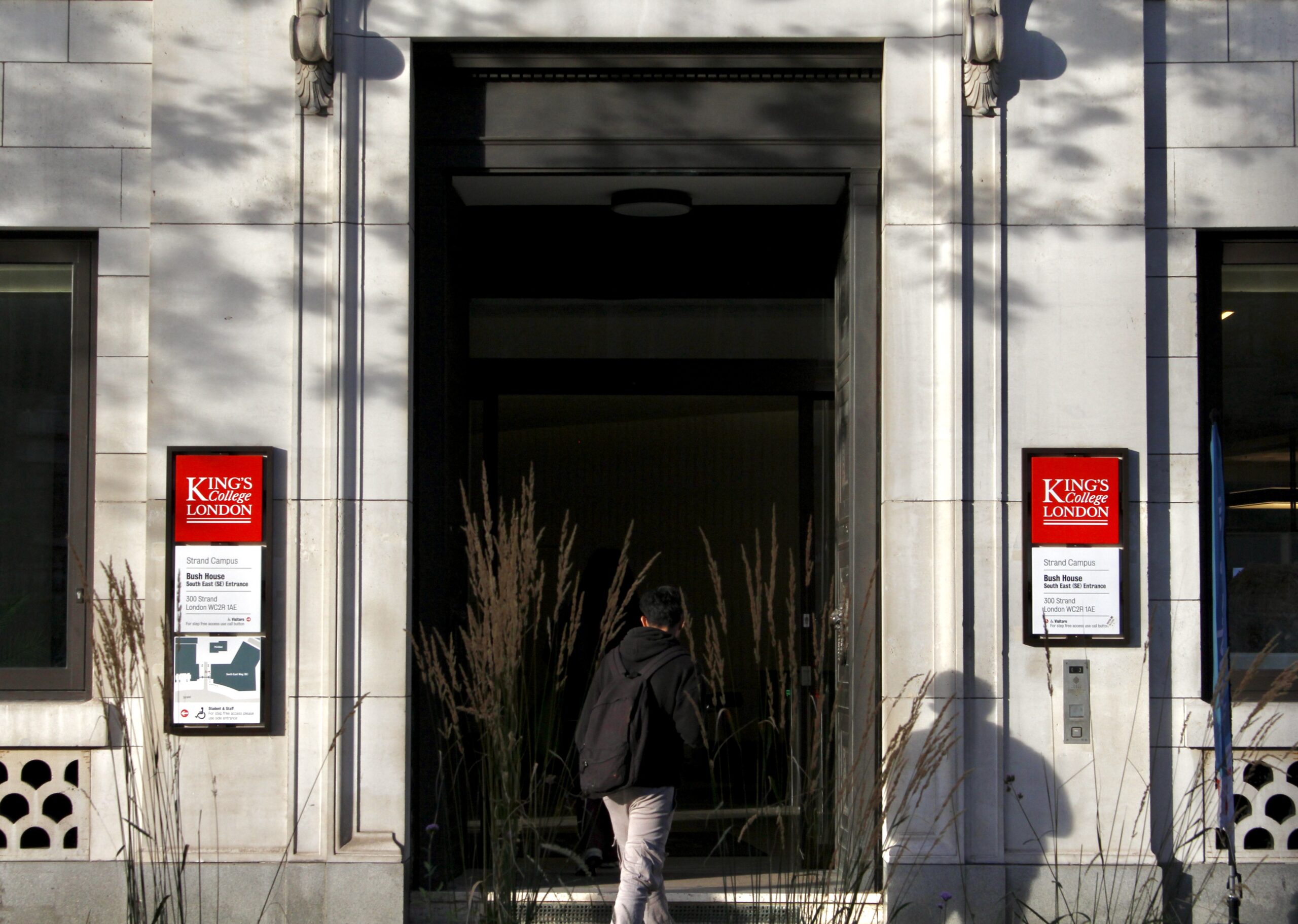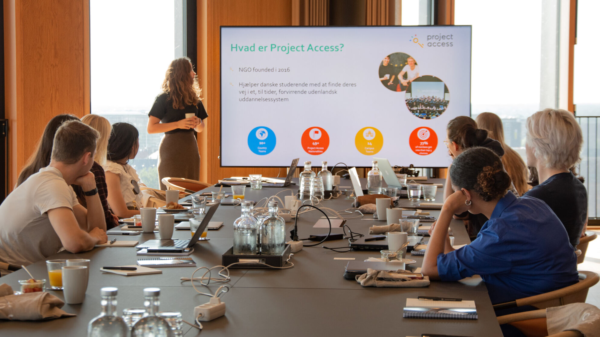In the first half of a two-part article, Roar writer Dania Quadri speaks to her experience growing up in both India and the United Kingdom as an Indian-English Muslim.
As a British Indian-English Muslim, I feel impacted by the politics of two countries: India and England. I have hopscotched between both countries since I was born, and have spent exactly half my life in each nation-state. I was born in India while my family resided in London, moved to London as an infant, stayed through my early childhood, went back to India for school and sixth form, and finally returned to the UK around seven years ago.
At primary school in London, I remember having a lot of birthday parties and spending time reading or playing with my sister. I don’t ever remember feeling like the “otherâ€. Even when our friends had birthdays at pubs, which can be off-putting to those who do not drink, I remember my Indian mum taking us anyway, saying we’d eat vegetarian food. As far as I remember, no one cared that we were Indian or Muslim or both. Of course, at such a young age I probably wouldn’t have noticed the things I do now.
As for growing up in India, those were interesting times. I quickly became aware of the fact that people treated my white-passing half-English father very differently compared to everyone else. We always managed to jump queues, receiving special service and attention whenever we went out. I knew people were fascinated by my English-looking father, and admittedly, I was happy to have a cool dad. Even if my parents would insist on waiting, friendly managers and staff always ushered us in, tables would magically appear for us in packed restaurants, and the doctor would always see us first.

As I grew older, I realised that we were treated differently not because my dad had cool super-powers, but because of a deep-rooted colonial mentality in India. This became increasingly obvious after my parents got divorced. When we went out with just my Indian mum, we had to wait like everyone else. I was angry that my mum didn’t get the same respect afforded to my dad in social settings.
By this point, I understood that privilege manifests itself in the forms of race and gender, but I never thought religion would be something I’d feel negatively impacted by. My mum grew up with non-Muslim friends, and they remain close to this day; they would sometimes show up for meals even when she wasn’t around. The only time religion was factored in was when it came to serving food. She always ensured that meat wasn’t served to anyone who didn’t eat it, on specific days or otherwise. Some of her friends would come over to eat chicken biryani, shaami with khatti daal and chicken khorma secretly, and I sometimes wonder what secrets she left behind in her childhood friends’ homes.
My life has been very similar to my mother’s. My friends visit my mum even while I am away, often sending me pictures of them sitting together. They celebrate Eid at my house, and despite not being Muslim, they can feel the celebration and be a part of it. Likewise, I spend Diwali at theirs – though as we’ve grown up, most of us have abandoned firecrackers. I also pray at my friends’ homes. Most of them know the direction of the qibla, and plans are easily accommodated to fit in namaz time.
While my friends were generally kind and open-minded, my school was blatantly Islamophobic. I dealt with what I now know were microaggressions on a daily basis but preferred to ignore them and carry on.
Fast-forwarding to Modi’s election in 2014, things changed rapidly. People who were quietly Islamophobic prior to his election began to engage with and justify right-wing rhetoric, including anti-Muslim sentiment. Those who were aware of Modi’s role in the Gujarat riots of 2002 would counter with, “but, he IS good for the economy.” Microaggressions similar to those from my secondary school days were making a strong comeback. It was clear that many felt Muslims did not belong in India. As people within my own friend circle became proud of the BJP, I began to feel alienated.
I received my greatest shock when my friend, whose house I practically grew up in, began mindlessly echoing nationalistic rhetoric. We were in the old city of Hyderabad, a predominantly Muslim and underprivileged area, when I remarked that it was a shame India did not do much to preserve its heritage. She pointed to the Indo-Islamic architecture around us and remarked dismissively, “this is all from invaders anyway.†Her statement, intentionally or otherwise, directly othered a community whose entire existence cannot be relegated to the invasion and oppression of Hindus. I remained silent for the whole journey home. Had our 18-year-old friendship been muddied by right-wing Hindutva rhetoric overnight?
Likewise, many of the people my cousins grew up with are turning against them, fuelled by nationalistic propaganda. It is truly heart-breaking. Nonetheless, as the situation for minorities and lower-caste individuals has worsened, some people have begun seeing sense and switching sides. I wish they didn’t have to witness large-scale atrocities and mainstream media coverage to understand our reality. I also, however, know people who have remained by our side and are fighting the good fight. I am grateful to have them in my life.
Moving to the British political landscape, things are far from perfect. Hate crimes against Muslims rose by 593% in the aftermath of the Christchurch mosque shootings in 2018. Racially-motivated crimes have been on a steady increase since a spike in 2016 following the Brexit Referendum. 47% of all religious hate crimes that occurred between 2018-2019 were committed against Muslims. In addition to this, the British government’s handling of Shamima Begum’s citizenship and the Windrush scandal depict how the media and government engage with the citizenship of “visibly racialised and Muslim individuals”. Instead of investing in community engagement and mental health services that would promote social connectedness and decrease the appeal of extremist ideologies, the government’s PREVENT system only makes things worse. There has been extensive research on how PREVENT enforces islamophobia and can both cause and exacerbate episodes of mental illness. I myself had to think hard about approaching mental health services at university for fear of being reported and having to deal with the potential consequences. It is concerning that a safeguarding policy may impede access to mental wellbeing services for those who need it.
Where one would expect solidarity from people of colour, there has been widespread support for Modi in the Hindu diaspora. The same people who need left-leaning or liberal politics to survive in the UK are opting for right-wing, conservative politics to supposedly thrive in India. To come full-circle, the BJP has managed to slither its tentacles into British politics, urging British-Indian Hindus not to vote Labour due to their pro-Kashmir stance, anti-Hindu politics, and apparent support for Islamist terrorist organisations. Right-wing white and Hindutva rhetoric go hand in hand; they are focussed on supremacy and thrive on the vilification of the “other”. Perhaps this is why I am so cautious of British Indian spaces.
Read the second part of this two-part article.

















